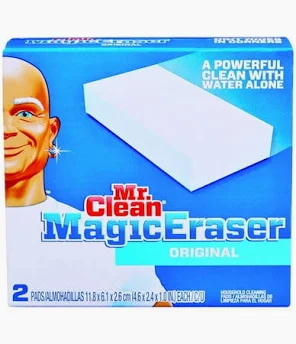
Clean Title vs. Insurable Title vs. Marketable Title
A seller’s obligation under a standard North Carolina Offer to Purchase and Contract is to provide “marketable and insurable title” to the property. Some buyers and sellers will refer to it generally as “clean title” or “clear title.” But what do all of these terms mean?
Clean/Clear Title. Clean title or Clear Title means a property that is free of tenants, liens, encumbrances, giving the owner complete freedom to do with the property what they will. However, truly clean title is extremely rare. Most properties have something affecting title and limiting the owner’s use of the property. For example, most properties will at least have utility easements that limit the owner’s use of the property. However, generally speaking, people use “Clean/Clear Title” interchangeably with “Marketable Title.”
Marketable Title. There are many, many definitions of marketable title. A very basic definition of marketable title is title that is free from any claims or disputes about the ownership or from any threat of litigation. Another frequently used definition is title that is acceptable to a reasonable purchaser, under which the purchasers may have quiet and peaceful enjoyment of the property. Yet another definition is title that is free from material defects.
There is a lot of gray area in these definitions. What constitutes the “threat of litigation?” What is a “reasonable purchaser?” What is a “material defect?”
Broadly defined, a material defect is any defect that could affect the value of the home and is significant enough to influence a reasonable purchaser’s decision to purchase the property or not. Thus, what constitutes a “material defect” is largely subjective. What may be material to one buyer might not be material to another. And some defects may be deemed to be more significant than others. An encroaching fence, which is moveable, may be less significant than an encroaching cement driveway or an in-ground pool, which are clearly not moveable.
Your closing attorney will help you navigate the realm of “material defects,” looking for things such as gaps in the chain of title, flawed legal description of the property on the deed, easements, unpaid taxes, and other liens. We always recommend that you obtain a survey of the property to discover the location of easements and to ensure that there are no encroachments or obvious boundary line disputes. Your survey is going to be important to help identify potential material defects.
Suppose your survey discloses that the neighbor’s fence is 3 feet across the property line onto your property. To some, a fence encroachment may seem like a relatively insignificant defect. Fences are moveable so if need be, you could ask the encroaching neighbor to move their fence, right? However, what if the neighbor disagrees with you about where the boundary line is, and they don’t believe their fence is encroaching? Or suppose they have been making use of that 3-foot section of your yard for a period of 20 years or more and decide they want to claim title to that portion of your yard by adverse possession? Suppose you are under contract to sell your property and your buyer objects to the encroachment and you risk losing the sale of your property due to the defect? That innocuous fence encroachment has suddenly become a legal issue for you, the property owner, and may have exposed you to potential litigation in order to clear up the dispute. In that case, that small fence encroachment suddenly seems like a “material defect,” doesn’t it?
Insurable Title. Insurable title is title on which a title insurance company is willing to issue a title insurance policy. However, title insurance policies contain a list of exceptions from coverage, things they will not insure, which will include any items of public record such as liens, rights-of-way, easements, matters shown on recorded plats of the property, and covenants and restrictions for a subdivision, to name a few, as well as matters that would have been shown had a survey of the property been conducted prior to closing. Insurable title is a lower standard than marketable title. In other words, title to a property can be insurable without being considered marketable, and the buyer may need to decide whether they are willing to assume the risk of certain defects in title.
Written by Pamela Entrikin, Esq – October 25, 2024
